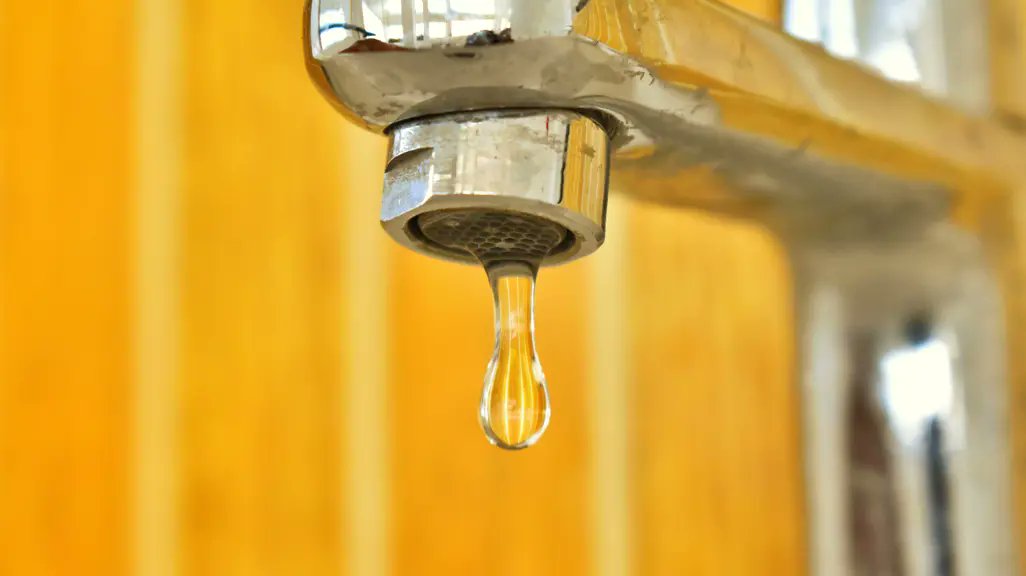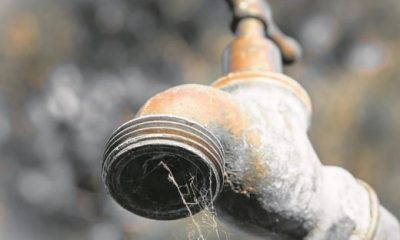News
Water Interruptions Hit Major Gauteng Hospitals During Rand Water Maintenance

Infrastructure upgrades spark water woes, but health services push through
What started as routine infrastructure maintenance by Rand Water has quickly rippled into a full-blown public health concern across Gauteng, as several hospitals and clinics face water shortages mid-winter. From the bustling corridors of Helen Joseph Hospital to the high-pressure wards of Charlotte Maxeke, healthcare workers are battling not just patients’ ailments, but the taps running dry.
Rand Water Switch-Off Sparks Hospital Disruption
Since 30 June, Rand Water’s planned maintenance at key pumping stations, Eikenhof, Zwartkopjes, and Palmiet, has triggered widespread water interruptions. The work is set to continue until 21 July, and while essential for long-term stability, the short-term impact has been severe.
The Gauteng Department of Health (GDoH) has confirmed that multiple hospitals and clinics have been affected, though services remain operational, thanks to emergency supply plans.
Charlotte Maxeke and Helen Joseph Hospitals at the Epicentre
Among the most heavily impacted is the Charlotte Maxeke Johannesburg Academic Hospital, which saw pumping to its main reservoir (Parktown 2) suspended for over 50 hours. Although water continues to flow via gravity feed, hospital staff are relying on a delicate balance of tank top-ups and emergency reserves to keep life-saving operations running.
Meanwhile, Helen Joseph Hospital, serving the west of Johannesburg, is facing similar challenges. With no water from the main supply, Johannesburg Water has been dispatching tankers daily to fill hospital tanks and keep wards functioning.
Clinics Scramble for Jojo Solutions
Community clinics in high-density areas are also feeling the pinch. Facilities in Alexandra and Hillbrow have turned to Jojo tanks as their primary source of water, a temporary fix that underscores the vulnerability of basic healthcare delivery when infrastructure fails.
“We are on high alert,” said the provincial health department, urging residents to conserve water and remain patient.
Contingency Plans: A Lifeline in a Thirsty Province
Fortunately, the health department seems to have anticipated the worst. Most major hospitals have been equipped with boreholes, reservoirs, and water tanks that can last two to four days, depending on consumption. In a province known for both its population density and healthcare strain, such preparedness may well be saving lives.
The collaboration with municipalities, particularly Johannesburg Water, has been swift, with tankers rerouted and pressure-managed systems activated where possible.
Social Media: A Mix of Praise and Panic
While official channels are doing damage control, ordinary residents have taken to social media, some to commend the resilience of hospital staff, others to vent frustration at yet another disruption in essential services.
“This is Johannesburg, we can handle a lot, but not our hospitals running out of water,” one X (formerly Twitter) user posted.
Others called for longer-term solutions, asking why routine maintenance continues to result in such widespread fallout.
The Bigger Picture: A Province Under Pressure
This isn’t the first time Gauteng has faced infrastructure-related disruptions. From power cuts to burst pipes, the province’s aging systems are buckling under the weight of rapid urbanisation and underinvestment. The water crisis affecting hospitals is just the latest symptom.
But the stakes are higher when healthcare is involved. A delay in surgery. A neonatal unit without running water. Infection control compromised. These are not hypothetical risks, they are realities hospitals are now managing minute by minute.
With the maintenance scheduled to continue into the third week of July, it’s clear this is not a quick fix. The Gauteng Health Department has promised regular updates and is calling on residents to use water sparingly. For now, contingency plans are holding, but just barely.
In the words of a Charlotte Maxeke nurse overheard in the corridor: “We’re coping, but only just. The patients come first. The taps can wait.”
This is more than a water outage, it’s a stress test on public health infrastructure. While hospitals are managing for now, the province must face tough questions about long-term resilience. For everyday South Africans, conserving water and staying informed isn’t just civic duty, it’s solidarity with frontline workers doing the impossible under dry taps.
Rand Water’s Major Maintenance on Track, But Full Recovery Will Take Time
{Source: The Citizen}
Follow Joburg ETC on Facebook, Twitter , TikTok and Instagram
For more News in Johannesburg, visit joburgetc.com



























